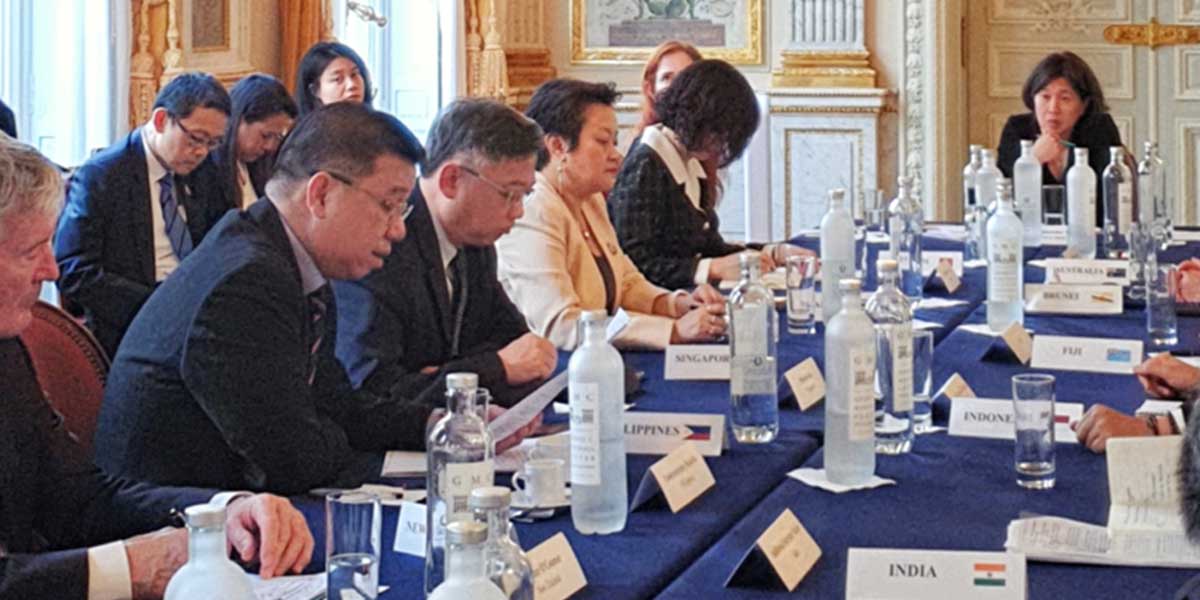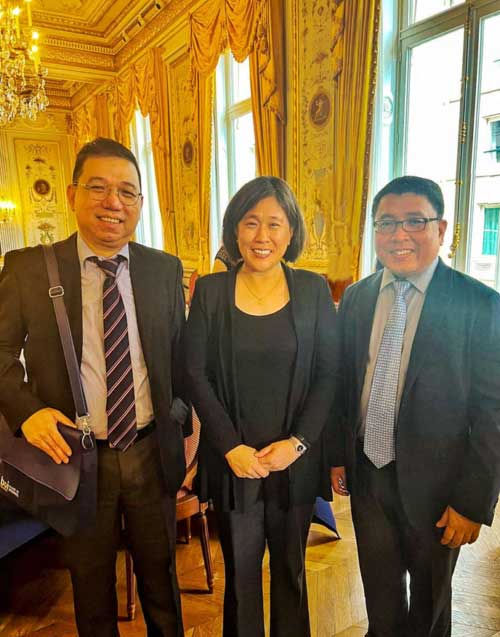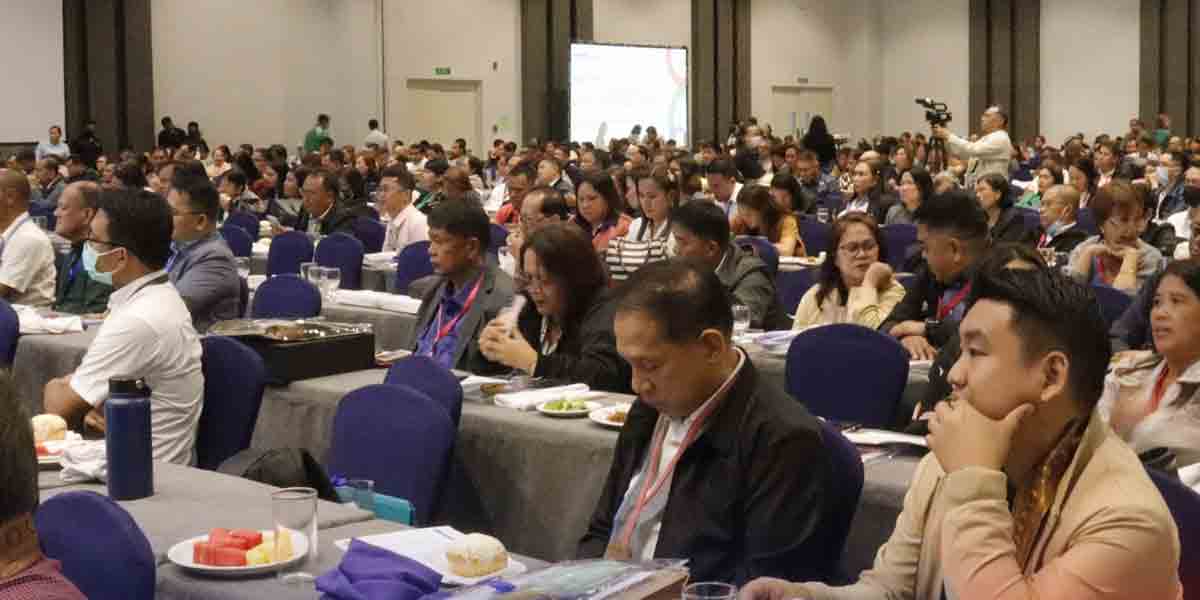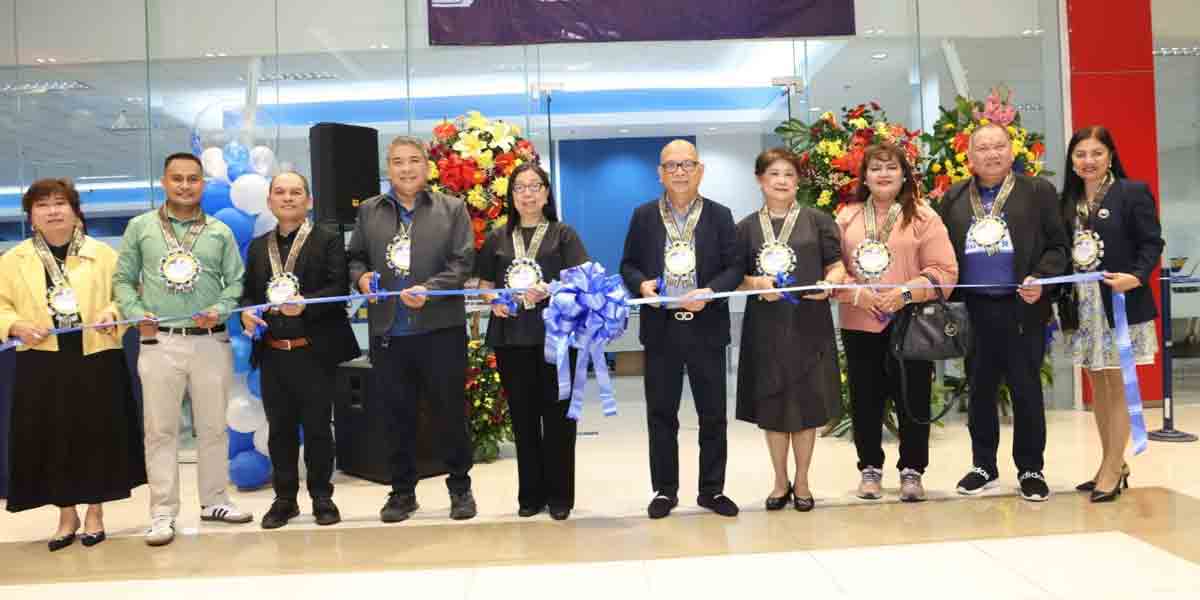
Representing Department of Trade and Industry Secretary Ramon Lopez, Undersecretary Ceferino Rodolfo participated in the Informal Ministerial Meeting on the Trade Pillar of the Indo-Pacific Economic Framework (IPEF) at the Hotel de Tallyrand, US Embassy in Paris, France on 11 June 2022.
Led by US Trade Representative Ambassador Katherine Tai, the meeting was attended by all framework partners that joined the official launch of the IPEF in May 2022, namely, Australia, Brunei, India, Indonesia, Japan, Republic of Korea, Malaysia, New Zealand, Philippines, Singapore, Thailand, and Vietnam, including Fiji, following its official participation in the framework after its launch.
In this meeting, USTR Tai highlighted the vision and goals of the IPEF for future negotiations on the identified pillars: (a) trade, (b) supply chain, (c) clean energy, decarbonization, and infrastructure; and (d) tax and anti-corruption.
Each framework partner was likewise provided an opportunity to discuss respective expectations and interests particularly on the Trade Pillar, as well as proposals on the framework to ensure sustainable and inclusive growth in the region.
Undersecretary Rodolfo further remarked, “We see the IPEF as a framework providing incentives to our stakeholders, tied up with the reforms that we are already undertaking domestically, through having a mechanism to link the Trade Pillar with pillars on supply chain resiliency and green energy transition. We also see this as a vehicle to spur investments from the private sector in these areas.”

To realize the vision of shared interest in post-pandemic economic recovery and supply chain resiliency, the Philippines, along with other framework partners, underscored the need to secure partners’ commitment in guaranteeing the free flow of critical goods (e.g., food, fuel, medicine). Undersecretary Rodolfo expressed his hope that remaining ASEAN member states will be invited at the most opportune time.
The IPEF was launched on 23 May 2022 and aims to strengthen US economic engagement in the Indo-Pacific region. It seeks to operationalize shared objectives around trade facilitation, standards for the digital economy and technology, supply chain resiliency, decarbonization and clean energy, infrastructure, worker standards, and other areas of shared interest.
In 2021, the Philippines’ total trade with current framework partners amounted to USD 106.89 billion, which is 53.71% of its total trade with the world.
Among the framework partners, top trading partners of the Philippines are Japan, United States of America, Republic of Korea, Singapore, and Thailand.




















